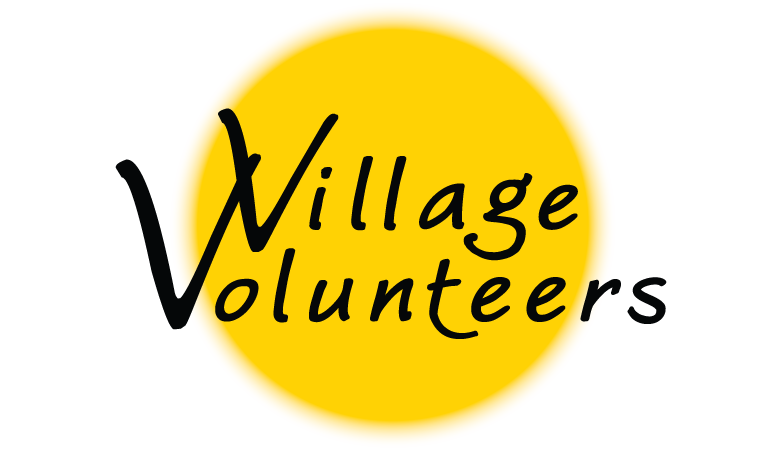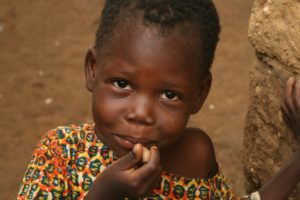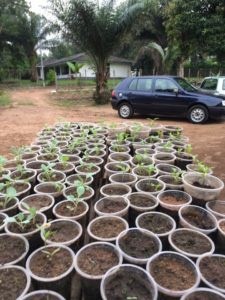Environmental Development Youth Movement
Environmental Youth Development Movement’s vision is to create a sustainable environment through organic farming, income generation, and conservation in the Volta Region of Ghana.
We love helping volunteers find their perfect placement. Fill out our Interest Form to get started!
Program Overview
Environmental Development Youth Movement (EDYM) is a community-based organization 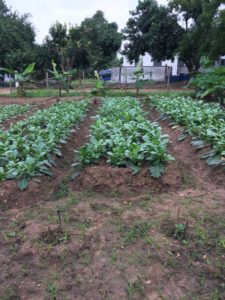 with a vision to train on sustainable farming, business development, and conservation in the Volta Region of Ghana. The community called Have is located in a beautiful tropical mountain just three miles from the Lake Volta, with waterfalls, monkey sanctuaries, and caves.
with a vision to train on sustainable farming, business development, and conservation in the Volta Region of Ghana. The community called Have is located in a beautiful tropical mountain just three miles from the Lake Volta, with waterfalls, monkey sanctuaries, and caves.
Unemployment and poverty levels are fairly high in rural Ghana communities. This leads to an over-reliance on natural resources, such as the forests and soils, to provide materials for survival. Unfortunately, this dependence has environmental consequences such as deforestation, land degradation, soil erosion, etc.
EDYM strives to spread “alternative sustainable livelihood practices,” which are income-generating techniques that are environmentally friendly. The goal is for rural farmers to undertake these practices to reduce the negative environmental impact of unsound farming practices such as farming on the mountain slopes, unnecessary bush-burning, and mono-cultures of crops.
EDYM Goals
Educate and train youth to restore and preserve the environment through educational campaigns, seminars, and conferences on the development of plant nurseries, agroforestry, organic vegetable production, compost making, poultry and livestock, budding and grafting, mushroom production, and beekeeping. EDYM directs a Junior Environmentalist’s Club.
EDYM sits on a 25-acre plot, called EDYM Village as a model of a rural farm and demonstration plot to train people in alternative sustainable livelihood practices. Various environmentally sustainable projects are showcased for both productive and educational purposes. Including Conservation training on the Weto Range Conservation Initiative
The programs include conservation training on the Weto Range Conservation Initiative. EDYM has a nursery that contains over 35,000 seedlings of Mango, Moringa, Polyathia, and others for reforestation projects.
Farming and Environment Work
Environmental Conservation Programs – Weto Range Conservation Initiative
Sustainable farming trainings at EDYM Village
Moringa Farm and other agricultural/farm work (between mid-April and June/July)
Education
Teach at the primary school
Teach at the Have Technical Institute
Public Health at Have Health Centre
Provide HIV/AIDS public awareness programs
Intake processing of patients
Light paperwork and note-taking
Monitor blood pressures
Administer vaccines
Cultural
Participate in drumming, dancing, drama, wood-carving, kente-cloth weaving, and other cultural activities.
Accommodations at EDYM
Housing
Volunteers are hosted in one of two houses. Both houses have locks on the doors and mosquito nets on the beds. The first house has one double-occupancy room. There is an indoor flush toilet and bathtub shower. Should there be a lack of water pressure, a bucket of water is available for force flushing the toilet and bucket bathing in the shower.
The second house has two single-occupancy rooms. There is a KVIP latrine for this home, and volunteers bathe from a bucket in an outdoor bathing room. From these accommodations, volunteers can walk to their activities at the Have Health Centre, the primary school or the Have Technical Institute. Volunteers working on the Moringa Farm will need to travel approximately seven minutes by trotro (public transportation) to reach the farm.
Meals
All meals are prepared by a cook who delivers the meals to the volunteer’s accommodations. Volunteers who have special dietary needs or food allergies should note their needs on their volunteer application so Village Volunteers can notify the EDYM staff in advance.
Drinking Water
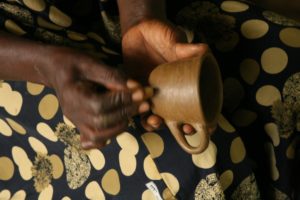
Purified drinking water is provided for volunteers.
Electricity
There is electricity; however, there are frequent power cuts. Volunteers are recommended to bring flashlights, candles, and matches.
Internet Access
The EDYM office has internet for volunteers to use for a small fee.
Laundry
Volunteers will be provided with water so they can launder their own clothing.
Meet EDYM’S Program Director: PAUL KPAI
Born into poverty as the 10th child, Paul faced many challenges in getting an adequate education. He was educated through junior high school level but then had to go back to work at the family cocoa farm. He struggled, but overcame and later found his way through college with his own initiative. In school, he learned that to volunteer is not only to be rewarded but also to belong. In his community, there was a dire need for somebody to organize the youth to do periodic cleanup since the sanitation was overlooked by the community. Paul took this up and mobilized the youth for a number of periodic activities that metamorphosed into a community-based organization eventually became the NGO EDYM.
More about EDYM:
Since starting EDYM, Paul has made astounding accomplishments and been recognized by the Ministry of Environment Science and Technology. Among many other successes, Paul established EDYM Village, a training and demonstration center with various forms of economically friendly agricultural practice,
He has trained adults, youth and PeaceCorps volunteers in subjects such as Indigenous Leafy Vegetable (ILV) production, grasscutter breeding, budding and grafting, and other organic farming techniques.
While EDYM faces mainly financial and material challenges, Paul realizes that environmental work has always been challenging but not insurmountable.
What have volunteers done to help EDYM?
Paul’s community has benefited from activities of volunteers who helped out in a number of ways including refurbishing a library and school building and provided learning materials for the students. Village Volunteers stocked books and for the library.
Accomplishments
Paul learned during middle school level that to volunteer is not only to be rewarded but also to feel and belong. In his community, there was a dire need for somebody to organize the youth to do periodic cleanup since the sanitation was overlooked by the community. Paul took this up and mobilized the youth for a number of periodic activities that metamorphosed into a community-based organization eventually became the NGO EDYM.
How does the EDYM community benefit from having volunteers?
Paul’s community has benefitted from a number of activities of volunteers who helped out in a number of ways including refurbishing a library and school building and provided learning materials for the students. Village Volunteers stocked books and for the library.
Accomplishments
- Rated ‘most active’ environment NGO in the Volta region by the Ministry of Environment Science and Technology in 1998 and 2004. Established EDYM Village, a training and demonstration center with various forms of economically friendly agricultural practices.
- The undertaking of tree growing and community afforestation projects
- Executed, in partnership with CBUD, a project to reclaim and replant lands degraded at Ayamfuri mines on behalf of Anglo-Gold Ashanti. Trained 80 youth in snail rearing and Indigenous Leafy Vegetable (ILV) production
- Trained 50 people in grasscutter breeding
- Trained Volunteers in budding and grafting, and organic farming techniques (2004 & 2005)
- Donated 3000 seedlings of Polyathia spp. to E.U. Micro Projects for planting at their project sites in the Volta region (2004)
- Establishment of three Junior Environmentalist Clubs at the JSS level
- Weto forest conservation project commence in earnest (2006)
